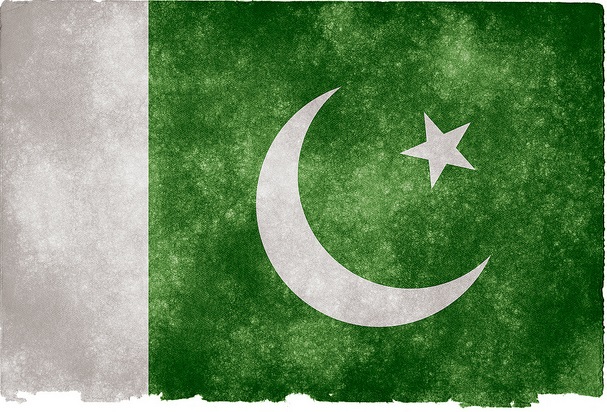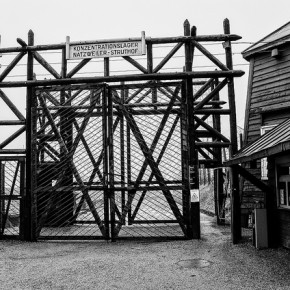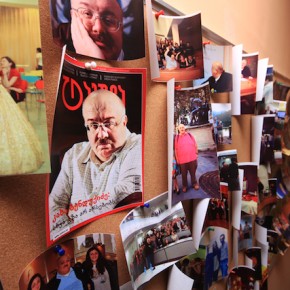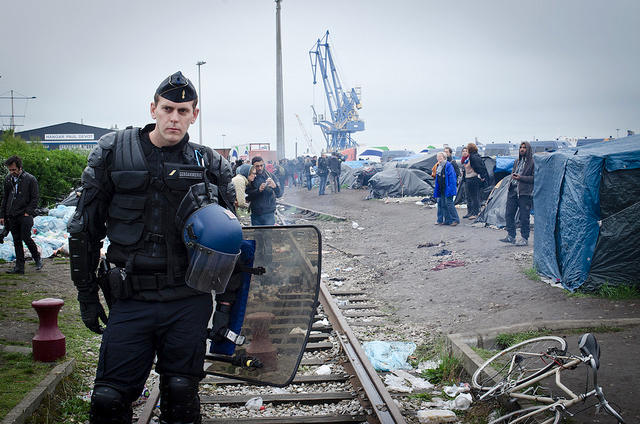Although I chose to live in London for graduate school, I did not come here of my own volition. My relocation to Europe is in stark contrast to the enthusiastic feelings I originally had when I shifted my Emirati-Canadian upbringing to New Jersey for undergrad. The process has been too painful to discuss with many people, but interestingly, my mother’s own physical and spiritual exhaustion has informed a deep understanding of what I am feeling.
The following interview was originally intended to be research for another article, but it developed into something that is important as a stand-alone piece. Tasnim Ahmed immigrated from Pakistan to Canada in 1982 to join my father, who she had recently married. She is different from me in many ways, but shares my sense of anger, disillusionment, and withdrawal from former friends. Certain details have been changed for anonymity, and some sections have been cut into the interview from other conversations over the past two years.
Assalamualaikum, ameejee, aap kase ho?
Tasnim: Alhumdullilah, beta, mein theek ho. I’m happy that you are starting to speak the language better.
Before we get started ameejee, I just want to know if you want me to change your name or anything?
Tasnim: Nay, beta, please don’t take video, but your father and I have come to the age where we want to talk about things that happened. You can use my name, I want people to know. I have definitely felt more discrimination in Canada than in America, but that could also be because I don’t live there.
What happened exactly, ameejee? I only know a few stories.
Tasnim: Well, you don’t know this, but in Pakistan, I always had the reputation of being, I don’t know how you say in English, I was very chipper and lively and fun as a person. I was very confident when I came to Canada, and I was very beautiful. The other girls always admired me. I never really liked school that much and didn’t study very hard, though. I was a very social person. That is why these countries hurt me so much.
When I first arrived in Canada, we landed in Calgary, and I remember that your father’s uncle’s wife did not like me at all. I couldn’t really speak English, only a few sentences, and she was very judgemental and treated me very badly.
Isn’t she white?
Tasnim: Yes, yes, she is a white Canadian. And even though she married a Pakistani, she just had no respect. I honestly have no emotional attachment to her. She thought that I couldn’t speak the language and that I had no Canadian manners. She made me feel like I came from the jungle. I called my uncle very soon after that because I just wanted to go home.
There was another time, we were in Saskatoon at that time, your sister had just been born, and I remember that I was wearing pants a lot. I wanted to wear shalwar, but people had warned me against it. I wanted to blend in, but one day, I was just wearing it, and walking down the street. And then, this car full of men who were older than me stopped the car. They were all white. They started shouting at me, and calling me “Paki,” and telling me “go back where you came from.” Beta, I was so sad. I didn’t like Canada before that, but I was just so sad. And I wanted to leave.

That’s rough, man. For what it’s worth, I’ve also been told that thing about the manners. They always do it politely, though. It’s how they decide who has status, they tell you that you don’t with honeysuckle voices and act like you’re the crazy one.
Tasnim: You get that from me, beta. Your father has actually been a little frustrated with me before when I complain that you are annoying me and that you have no respect for things, and you are always breaking rules, and you are always getting in trouble. And he says, “well where do you think he got that from?” *Laugh* You know that all these political things, you got them from me? I see you arguing and it sounds like me when I was young and yelling at people about Bhutto. You will see one day, kids are always like you, but they’re like you in ways you didn’t expect when you had them.
There was another time that I babysat for a Canadian woman for a month, and I even fed her daughter, and then she ditched me and didn’t pay for it. And she asked, “well what are you going to do about it?” And she never paid, and I didn’t feel like I could do anything about it. I’m an immigrant, I’m not going to win with these white people. And if I was looking for a job or an apartment, they would look at me and give me an excuse for not giving it. I hated it here, I’ve always hated it here. But now I’ve spent more than half my life here.
It doesn’t really seem fair, does it? I’m sorry for what happened to you, ameejee. You deserved better than a bunch of gorahs getting on your case for being yourself.
Tasnim: So did you, mere jan. It makes me so sad to think about what these people did to you. The FBI, the police, the government, the border guards, the schools, all of them. I do not really understand everything that they did, and what exactly you believe that they don’t like. I am not educated you know. Mash’Allah, you know things and can talk better than me. But I remember things.
When we had moved to Saskatoon, and you were running around the playground, you were eight at that time, the other parents used to completely ignore me and I heard them whispering about how I was a Paki. A few times I heard them warning their kids to stay away from you.
Is that why so many kids didn’t want to be friends with me?
Tasnim: Yes, when you were very small. It made me so sad when you would come and ask us why you weren’t cool because I just didn’t know what to tell you. When you started being interested in politics, and wanted to join the State Department, I kept quiet. I knew that one day you would learn. They whisper about us, they always will. The worst thing about having kids is explaining why white people hate them, and seeing them have to learn it.

It’s become very hard to trust people. I’ve withdrawn a lot. I’m not sure what to do about that whole theater of operations, y’know?
Tasnim: You have to be careful. People think that things have changed since I first came to Canada, but I have felt lots more discrimination in London, Ontario than in Saskatoon. And so much now that I wear the hijab, I go to the same places as before and now I feel like a worm on the ground. I was in the store with my cart, and I just waited until this white guy could deal with his two beautiful daughters who were fighting, and he yelled at me and said “don’t ever look at my daughters again!” And I just said, “I’m not looking, I’m just giving you space.” And he said, “People like you, I don’t want people like you looking at my daughters.” And I accidentally went in front of these two white ladies in line, and said sorry, and one said “nice try!” And they started laughing, and saying things like “no manners! She has no manners! She thought this was the village. They come here, and they don’t even know how to stand in line.”
Those Canadian manners.
Tasnim: Things haven’t changed. Things will not change. Things will never change. Some people are different, but there are still younger people who have those animosities, and they will be the take-overs.
I wasted so many years of my life here, and I took my kids to sports, and I learned the language, and I did my Grade 12 here part-time, and I lost my accent, and I still couldn’t fit in. I wore their clothes. I did all this shit. It didn’t matter for me, and even though you were born here, it won’t matter for you. Your friends are white, and you should respect them, but they will not understand.
What I’ve learned beta, because I’ve worked with them for 15 years, is that white people will give you a little bit of space if you completely turn into them, but if you don’t, they will hate you. They will turn and say, why are they wearing that? Why are they talking like that? They live here now, they should be like us. They were saying it thirty years ago and they are saying it today. Thirty years of my life are gone, and I still cannot please them. I don’t see any difference. I actually see it worse now.
It’s definitely gotten worse with the financial crisis, but the racism has just gotten worse in the past thirty years. There are also trends of Christian and Protestant fundamentalism that emerged from the fallout of the 1960s. And a bunch of other things.
Tasnim: I regret coming here. I so regret coming here. Your father regrets it too. I talk to people over there, and I say to them, don’t come to the West. Do things in your own communities. Help people in Pakistan. Don’t come here and think that everything will be better. It is too late for me to live out my life in Pakistan, but I want to retire there Insh’Allah. I know you like it there. You can come whenever you like. I know it will be different there now, but when I think about staying in these countries, I feel like I can’t breathe. You just need a haircut.
I mean, there are ways to wear my hair that are okay for Pakistan.
Tasnim: They’re going to say that you want to look like a gorah, you have to get a haircut. This is what I mean though, you have your own ideas, and your mind is made up. I have to go pray Asr, beta, so I have to go, is that all?
Yes ameejee, that’s plenty, I’ll have to edit some things if that’s okay.
Tasnim: I was talking to your Nanabu in Faisalabad, last year. I was sad because there were all these people in Pakistan, rich city people, Air Force people, who didn’t think I was good enough for them. He said that they treat him the same way, because we are ghareeb. Here, we are always Pakis, and there, we are always ghareeb. We’re not like these people from Lahore and Karachi who have degrees and their parents are doctors and diplomats. Money doesn’t buy everything. You’re not a minister’s son. Your family will never have manners, beta. Please don’t ever forget that, because other people never will. Allah Hafiz, beta.
Photographs courtesy of Nicolas Raymond, Stephan Geyer, and Oxfam International. Published under a Creative Commons License.






1 comment